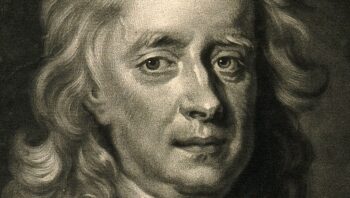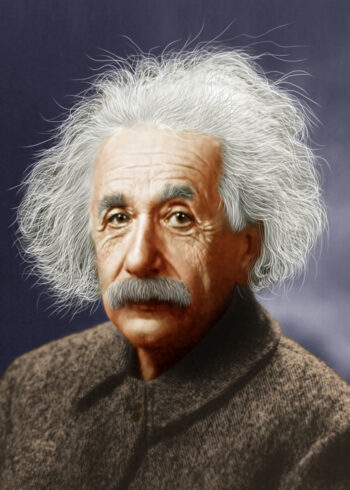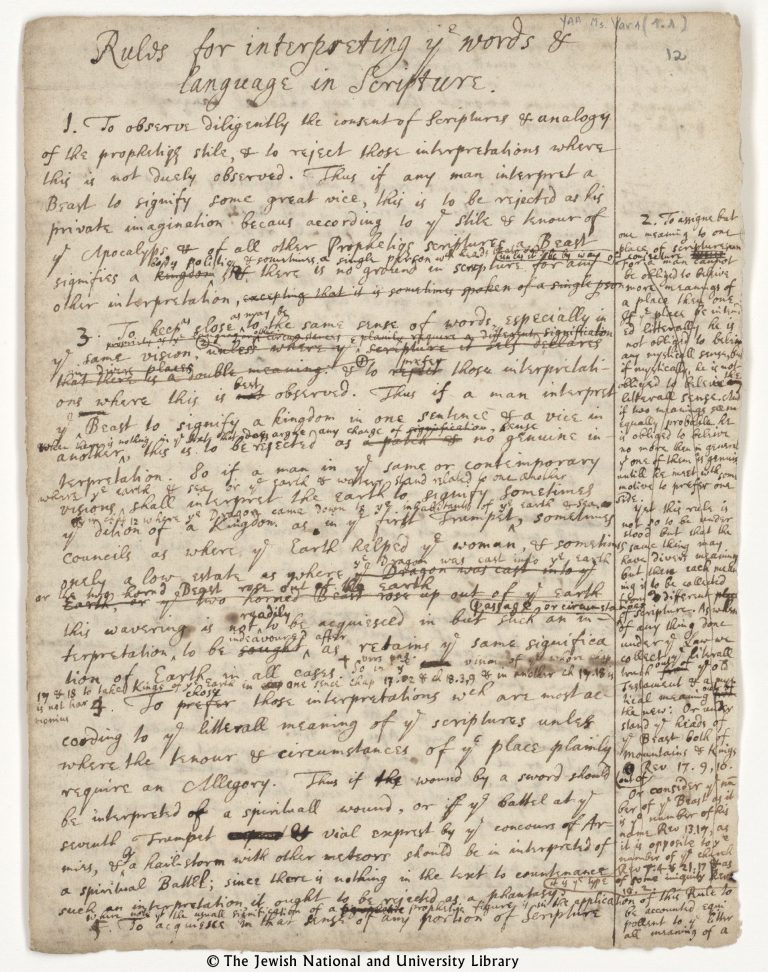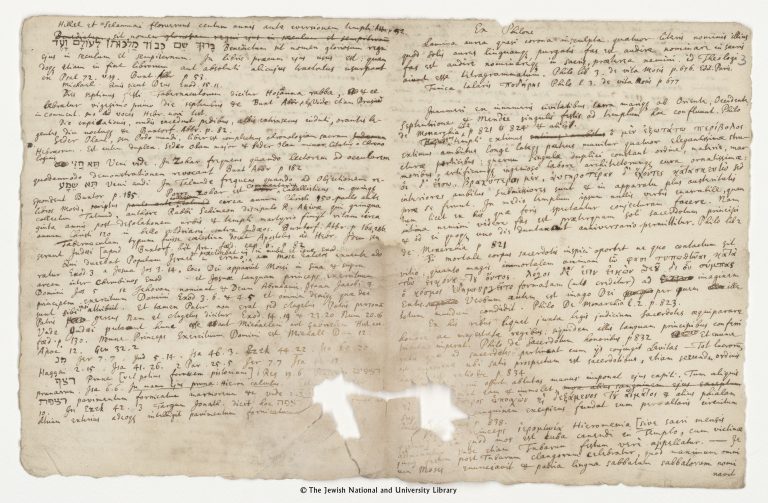By Mark Ellis —

He was one of the most influential scientists of all time. In developing laws of motion and gravity, Newton’s views held sway until Einstein’s Theory of Relativity came along several hundred years later. Lesser known are Newton’s ideas about God, and his controversial writings – once hidden – became known more recently.
Ironically, it was Einstein who recognized their importance and pushed for their dissemination – even Newton’s calculations for the end of the world.
Newton’s papers were donated to the University of Cambridge, but university officials refused to accept his writings on theology. These papers remained with his family until 1936, when they were auctioned, according to an article by Sharon Cohen, on behalf of The National Library of Israel (NLI).
Abraham Shalom Yahuda, a biblical scholar born in Jerusalem, purchased most of the manuscripts at the auction. After his death, the Newton manuscripts were donated to the National Library of Israel in 1967.
 When Einstein learned that Yahuda had obtained Newton’s theological writings he immediately grasped their importance and dashed off a letter to him:
When Einstein learned that Yahuda had obtained Newton’s theological writings he immediately grasped their importance and dashed off a letter to him:
“My Dear Yahuda,
Newton’s writings on biblical subjects seem to me especially interesting because they provide deep insight into the characteristic intellectual features and working methods of this important man. The divine origin of the Bible is for Newton absolutely certain, a conviction that stands in curious contrast to the critical skepticism that characterizes his attitude toward the churches. From this confidence stems the firm conviction that the seemingly obscure parts of the Bible must contain important revelations, to illuminate which one need only decipher its symbolic language. Newton seeks this decipherment, or interpretation, by means of his sharp systematic thinking grounded on the careful use of all the sources at his disposal.
While the formative development of Newton’s lasting physics works must remain shrouded in darkness, because Newton apparently destroyed his preparatory works, we do have in this domain of his works on the Bible drafts and their repeated modification; these mostly unpublished writings therefore allow a highly interesting insight into the mental workshop of this unique thinker.
Einstein. September 1940, Saranac Lake
P.S. I think that it is wonderful that the writings will all be kept together and made available for research.”
It is evident that Newton had an unshakeable view of God, as evidenced by his observation that, “Gravity explains the motions of the planets, but it cannot explain who set the planets in motion. God governs all things and knows all that is or can be done.”
But his papers contained unorthodox and even heretical views about the Trinity and the soul, which could have caused trouble for him from the Catholic Church or The Church of England, if he had been less circumspect.
Controversially, Newton believed the Bible presents God as one entity (the Father) and he believed that men and women do not possess souls.
Newton thought that Jesus was the son of God in the literal sense, not God in human flesh. “The denial of the Holy Trinity and the existence of the eternal soul were considered heresy by the Catholic Church and the Church of England, under whose auspices Newton lived and worked. Therefore, he was forced to keep his views secret, managing to evade the watchful eye of the Church,” Cohen notes.
In the dispute between Athanasius and Arius, Newton sided with Arius, who rejected the conventional view of the Trinity. Newton “recognized Christ as a divine mediator between God and man, who was subordinate to the Father who created him.” Shockingly, he even said, “the great apostasy was Trinitarianism.”
In the papers, Newton presented a systematic approach to interpret symbols in biblical prophecy. If a symbol could be identified properly, it could be applied to the entire Bible, he reasoned.

Newton thought the symbol of “The Beast” in Revelation signifies “a body politic and sometimes a single person which heads that body, and there is no ground in scripture for any other interpretation.”
Newton saw the Jewish Temple and the courtyard around it as a model of the heliocentric solar system, with the raised altar (located in the center) representing the sun.
He thought a rebuilt Jewish Temple would serve as the “site of revelation” for the apocalypse. Moreover, he posited that the Temple would be rebuilt in Jerusalem (with greater splendor than the original) at the onset of the Millennial Kingdom, with Jesus reigning on earth.

In his views of eschatology, he thought those who attempted to set dates for the end brought discredit to Christianity. In Newton’s private calculations, he thought the end of days would arrive no sooner than 2060:
“So then the time times & half a time [sic] are 42 months or 1260 days or three years & an half, recconing twelve months to a year & 30 days to a month as was done in the Calender [sic] of the primitive year. And the days of short lived Beasts being put for the years of [long-]lived kingdoms the period of 1260 days, if dated from the complete conquest of the three kings A.C. 800, will end 2060. It may end later, but I see no reason for its ending sooner.
“This I mention not to assert when the time of the end shall be, but to put a stop to the rash conjectures of fanciful men who are frequently predicting the time of the end, and by doing so bring the sacred prophesies into discredit as often as their predictions fail. Christ comes as a thief in the night, and it is not for us to know the times and seasons which God hath put into his own breast.”




Newton was an amazing genius but no matter how smart, Daniel’s book of truth wasn’t open and no one
could understand the times we live in back then.
Comments are closed.